“ Do you know, Ivan Vasilievich, that during the entire time on my vacation I had a very strong premonition of death. Somehow, I don’t want to die, but every evening this idea gnaws at me. I feel it so acutely, and it’s so disappointing that I’ve lived for a long time but haven’t done much. “ And continues:
“ When I die, all of the artists and those we know me must bury me in Barvikha. Do you remember where we sat the last time? You can see far into the distance. The Moscow River winds its way calmly. But further from the shore that my legs won’t stick out. And place on the grave a tower in the shape of that column, which is in the Tretiakovka (perhaps in the basement) on which will be placed a telescope – “ Jupiter” to look through. And when you drop dead you can lie down next to me-I know you’ll outlive me.”
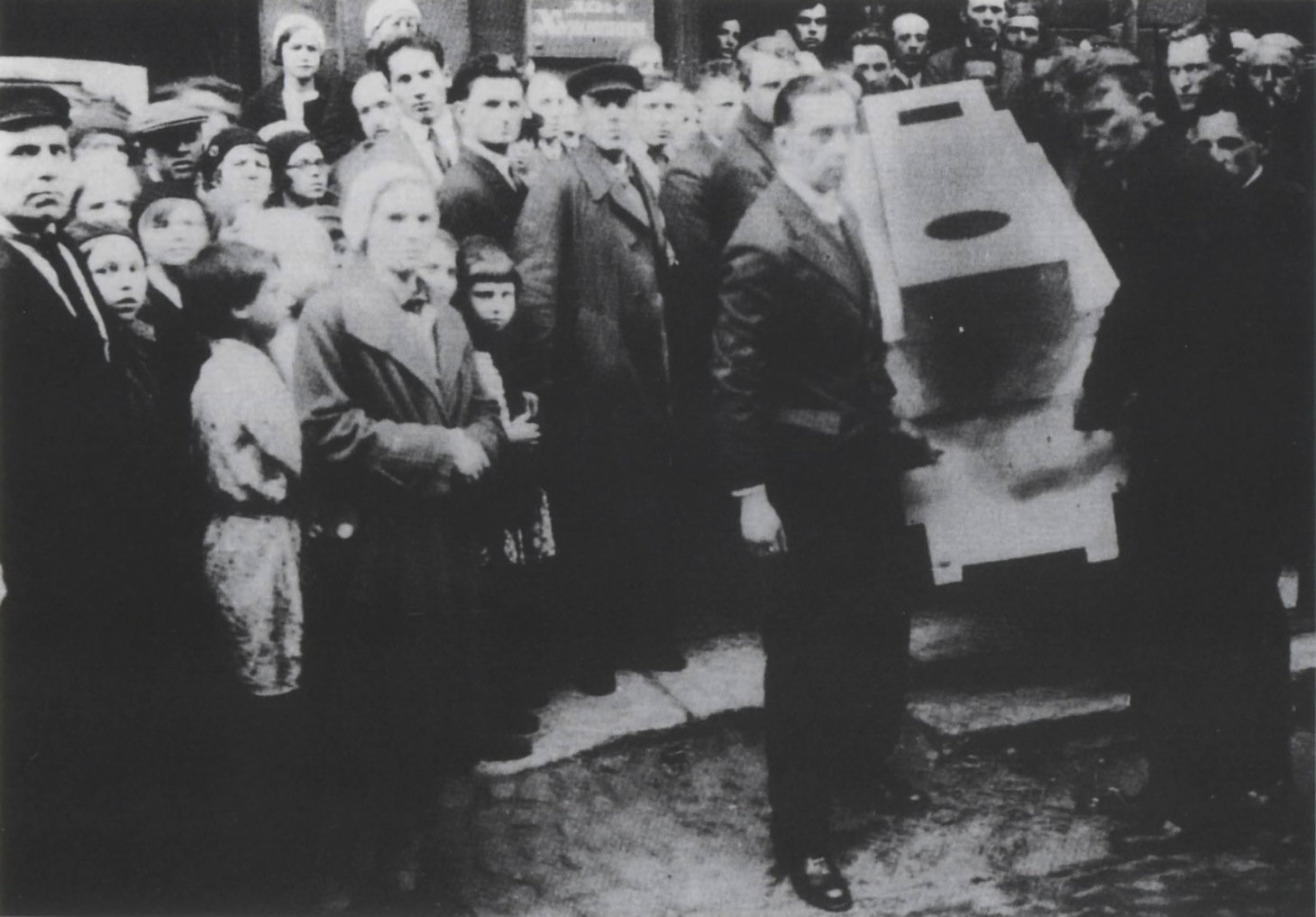
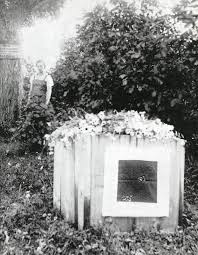
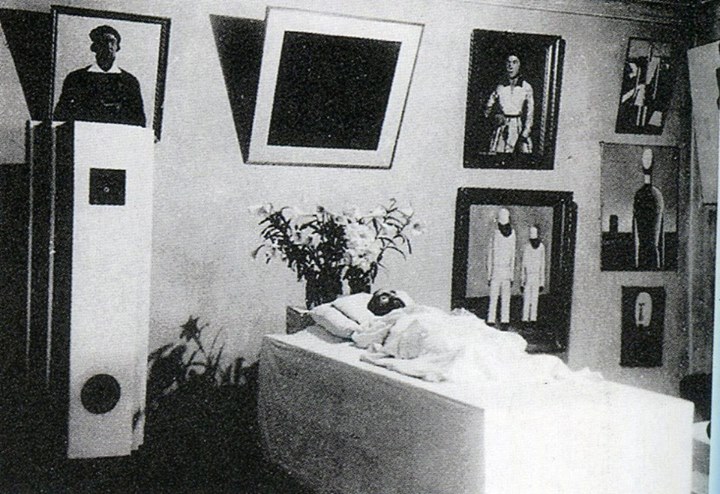
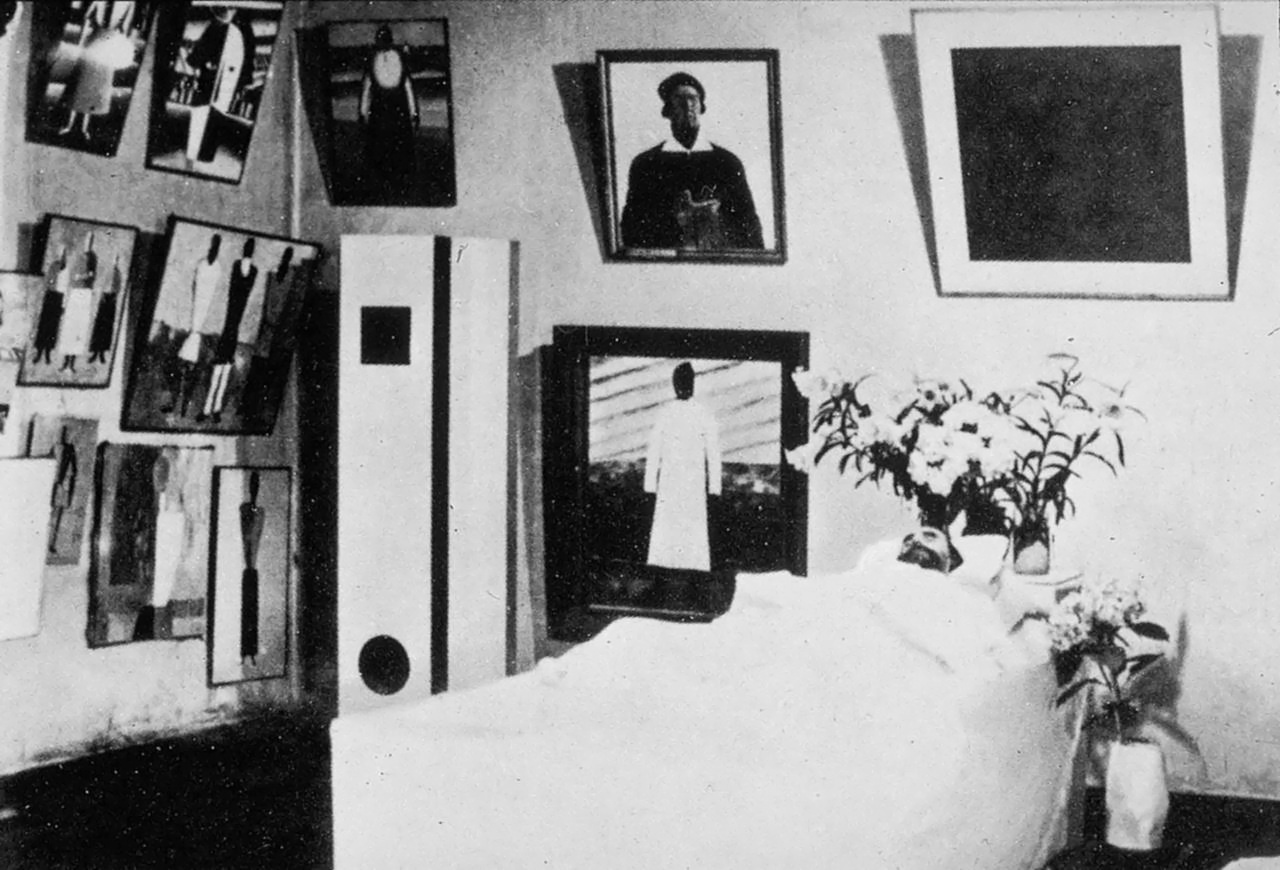
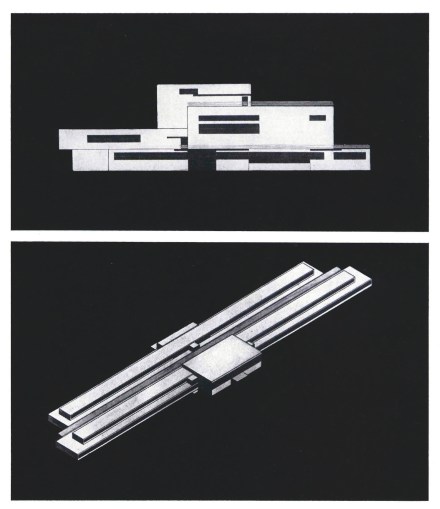
Sergei Eisenstein described the quite controversial nature of the area Malevich was buried at (no longer a city, but not yet a village) in his short story about visiting Malevich at Nyemchinovka. He wrote:
“If you turn your back on the scenery, vast horizons seem to stretch behind you. But if you face it, you will see it was all an illusion and what seemed to be a river bank unexpectedly becomes a slope towards a path overgrown with some trash.”
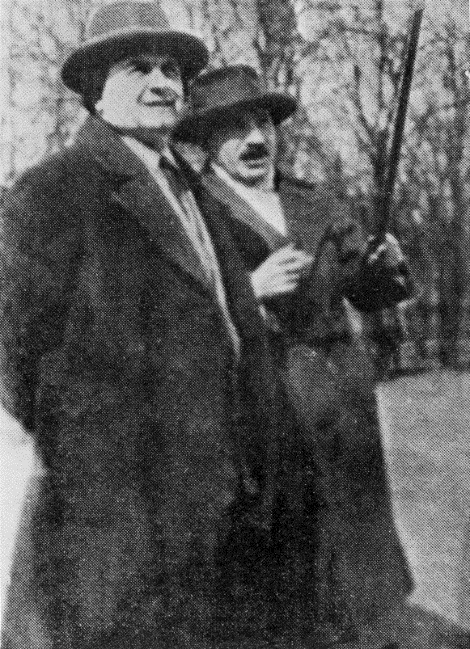
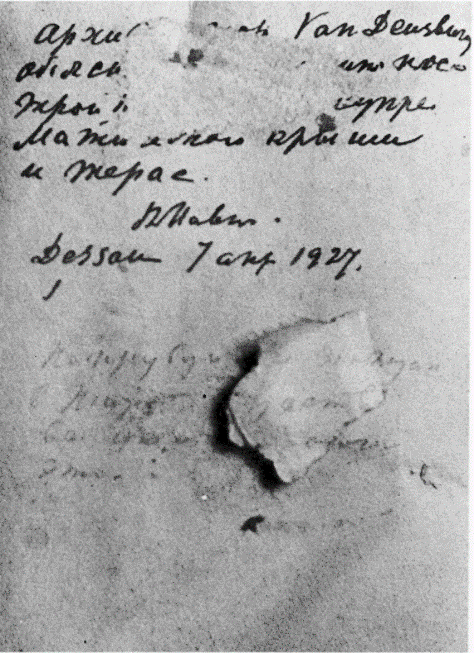
That Van Doesburg’s reputation was still unimpeachable within Malevich’s circle is also confirmed by a snapshot made in April 1927, during Malevich’s visit to the Bauhaus in Dessau. In two photographs, Malevich poses in the garden with Tadeusz Peiper, a Polish poet and art critic who accompanied Malevich on his trip from Warsaw to Berlin. The text on the back of the first picture claims, in what seems to be Malevich’s handwriting, that he is here immortalized with Le Corbusier (Fig. 4, 5). From the incorrectly spelled—and now damaged—text on the back of the second picture (Fig. 6), one was supposed to conclude that Malevich was in Dessau on April 7, 1927, with "the architect Van Deusburg [sic]" explaining to him "[illegible] Suprematist roof and terrace" (Fig. 7).
https://www.stedelijk.nl/en/digdeeper/suprematism-and-neoplasticism
On the death of Kazimir Malevich, May 17th 1935
by his friend and contemporary, the absurdist poet and writer, Daniil Kharms
Ripping the stream of memory,
You look around and your face is pride-stricken.
Your name is — Kazimir.
The sun of your salvation wanes and you look at it.
Beauty has supposedly torn apart your earth’s mountains,
No area can frame your figure.
Give me those eyes of yours! I’ll throw open a window in my head!
Man, why have you stricken your face with pride?
Your life is only a fly and your desire is succulent food.
No glow comes from the sun of your salvation.
Thunder will lay low the helmet of your head.
Pe — is the inkpot of your words.
Trr — is your desire.
Agalthon — is your skinny memory.
Hey, Kazimir! Where’s your desk?
Looks as if it’s not here, and your desire is — Trr.
Hey, Kazimir! Where’s your friend?
She is also gone, and your memory’s inkpot is — Pe.
Eight years have crackled away in those ears of yours.
Fifty minutes have beat away in that heart of yours.
Ten times has the river flowed before you.
The inkpot of your desire Trr and Pe has ended.
“Imagine that!” you say, and your memory is — Agalthon.
There you stand, pushing apart smoke with your hands supposedly.
The pride-stricken expression on that face of yours wanes,
And your memory and your desire Trr disappear.
May 17, 1935
Translated by Ilya Bernstein
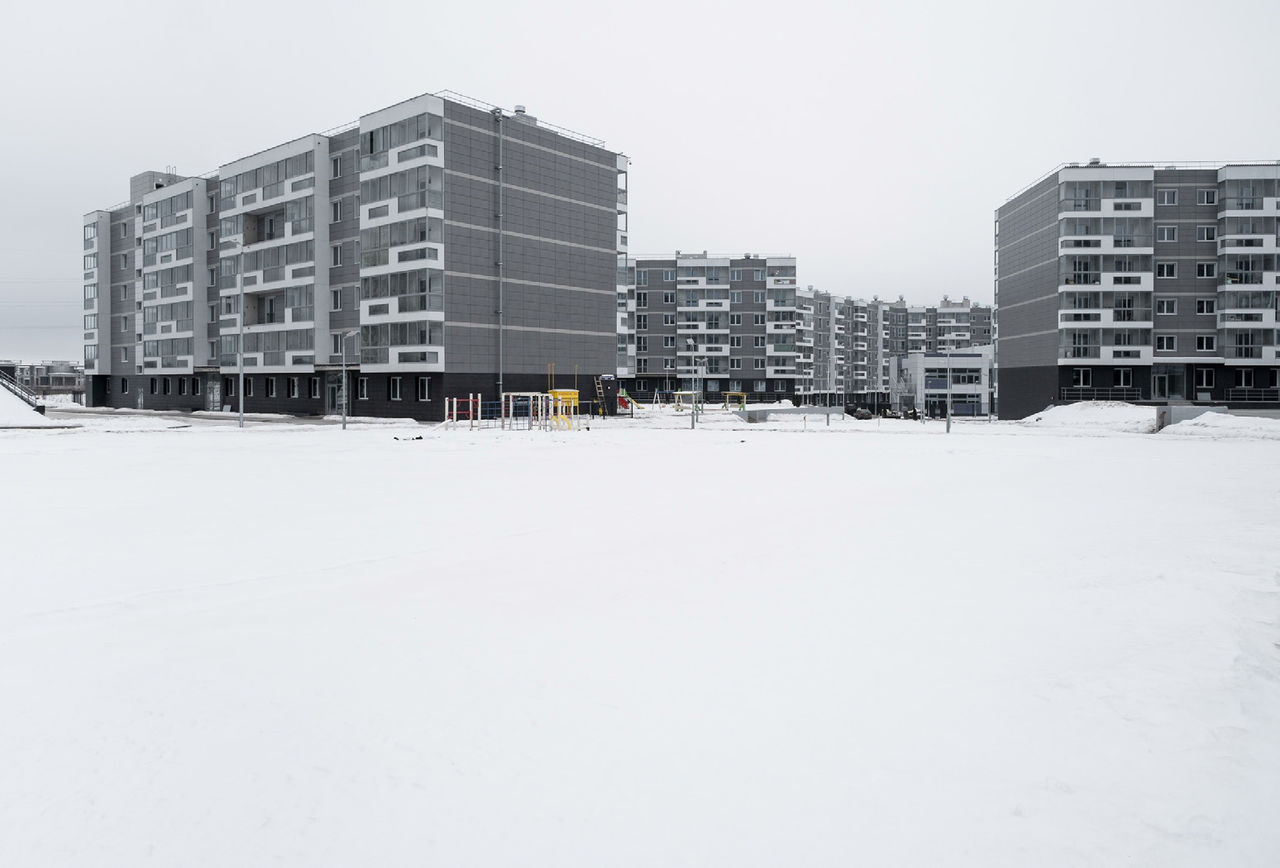
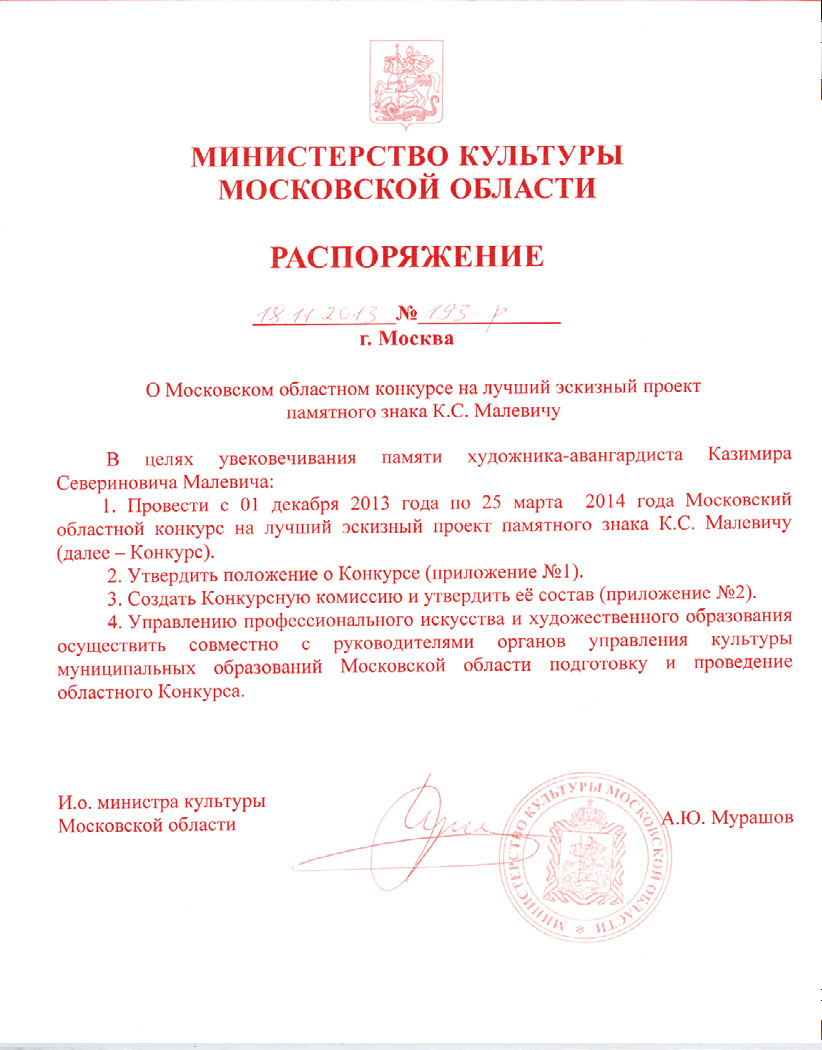
http://www.nemchinovka-malevich.ru/TEXT/ENGLISH/NiM.html
"To put it simply, there are two basic ways to approach the past in a scientific way: written sources and archaeological evidence. When one is not to be found, the other one can take its place and offer knowledge and valuable clues. When both are absent, things can get somewhat more complicated; even then, though, there can be indirect evidence. For instance, given that there is no surving historical work about Alexander the Great from the very century he lived (4th century BCE), let us suppose that we had no archaeological evidence about him either; we could still study the accounts on him written in the later centuries, some of which are well documented and reliable. Also, we can infer a lot of things in another indirect way, namely by studying evidence from eras anterior and posterior to the one we have no knowledge about. And never forget that what we know few about today, will possible be approachable to knowledge tomorrow. All told, it is extremely difficult for actual major gaps in history to exist and, more importantly, there is no gap in human history as a whole."
https://www.quora.com/Are-there-any-major-gaps-in-our-understanding-of-human-history-And-if-so-how-significant-are-they-how-long